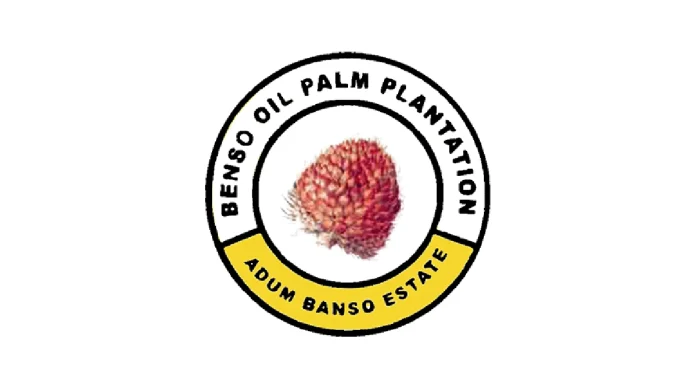
Benso Oil Palm Plantation PLC, Ghana’s largest producer of palm oil and a subsidiary of Wilmar Africa Limited, has delivered robust financial performance for the nine months ended September 30, 2025, with revenue climbing 15.2% and net profit rising 12.5% compared to the same period last year.
The company’s unaudited financial statements released to the Ghana Stock Exchange show revenue reached GHS 313.8 million, up from GHS 272.4 million in 2024, driven primarily by increased sales to third parties. Net profit for the period stood at GHS 74 million, compared to GHS 65.7 million the previous year.
Perhaps more impressive than the profit growth was Benso’s cash generation. The company produced GHS 66 million in net cash from operating activities, a dramatic surge from just GHS 12.6 million in the same period of 2024. This represents more than a fivefold increase in operational cash flow, signaling that the business isn’t just profitable on paper but is converting those earnings into actual cash.
The stronger cash performance allowed the company to end the period with GHS 43.5 million in cash and bank balances, more than double the GHS 21.9 million it held at the same point last year. This buildup happened despite the company investing GHS 40 million in property, plant and equipment, and paying out GHS 38.5 million in dividends to shareholders.
Profitability margins also improved across the board. Gross profit margin expanded from 34.3% to 36.6%, while operating profit margin rose from 26.6% to 27.3%. These improvements suggest Benso has managed its direct production costs more effectively relative to sales, even as administrative expenses increased by 17%.
Basic earnings per share climbed to GHS 2.13 from GHS 1.89, reflecting the increase in profitability on a per share basis. The company’s total assets grew to GHS 445.9 million from GHS 412.5 million, driven by investments in property, plant and equipment, as well as a significant rise in long-term receivables to GHS 78.2 million from GHS 56.4 million.
The performance comes at a pivotal time for Ghana’s palm oil sector. The country currently supplies only 70% of national palm oil demand domestically, and imports about 200,000 metric tonnes annually at a cost of $200 million. The government has announced plans to develop 50,000 hectares of industrial palm oil plantations, with the first phase targeting 20,000 hectares requiring $100 million in private investment.
Starting July 14, 2025, the Tree Crops Development Authority began requiring all palm oil importers to register and obtain official permits, a move designed to stabilize Ghana’s domestic market and protect local producers from unfair competition caused by unregulated imports.
Benso’s equity base strengthened during the period, with total equity rising to GHS 349.4 million from GHS 322.6 million. The company is predominantly financed by equity, with its income surplus account growing to GHS 347.4 million. Despite higher cash dividend payments in 2025, the dividend declared from current period profits was GHS 31.6 million, lower than the previous year’s GHS 35.1 million, allowing the company to retain more earnings for reinvestment.
The company’s long-term receivables jumped significantly, which management will need to monitor for collectability. Other income fell to GHS 4 million from GHS 7.3 million, and finance income decreased to GHS 2.4 million from GHS 6.7 million, suggesting lower income from non-core operations.
Benso Oil Palm Plantation, incorporated on January 22, 1976, operates over 5,000 hectares of oil palm plantations at the Adum Banso Estate in Takoradi. The company produces refined palm oil products including RBD Palm Oil, RBD Palm Olein, and vegetable oils, controlling a significant share of the West African market.
Benso’s shares closed at GHS 34.35 on the Ghana Stock Exchange in August 2025, gaining 36% year-to-date and ranking it 13th on the GSE in terms of performance. The company’s market capitalization stood at approximately GHS 1.2 billion.
The strong operational performance and improved cash generation position Benso Oil Palm well for continued investment in expansion and modernization, even as Ghana’s palm oil industry undergoes significant policy transformation aimed at reducing import dependence and boosting local production capacity.
